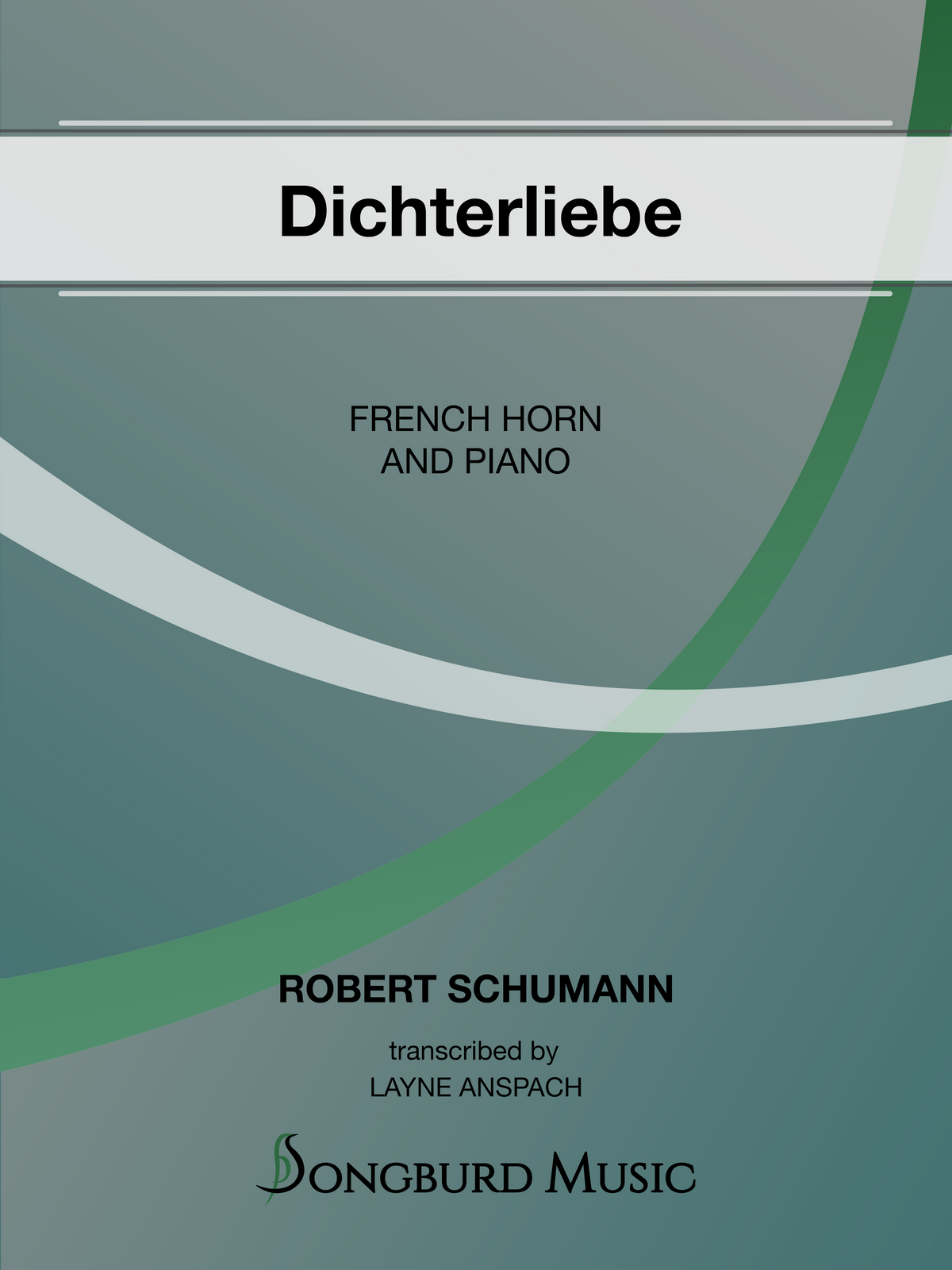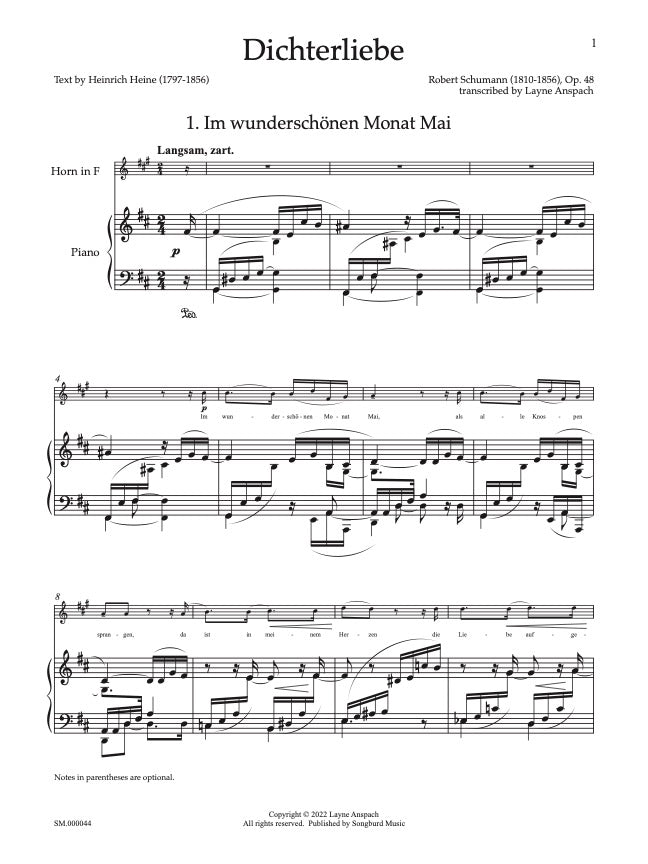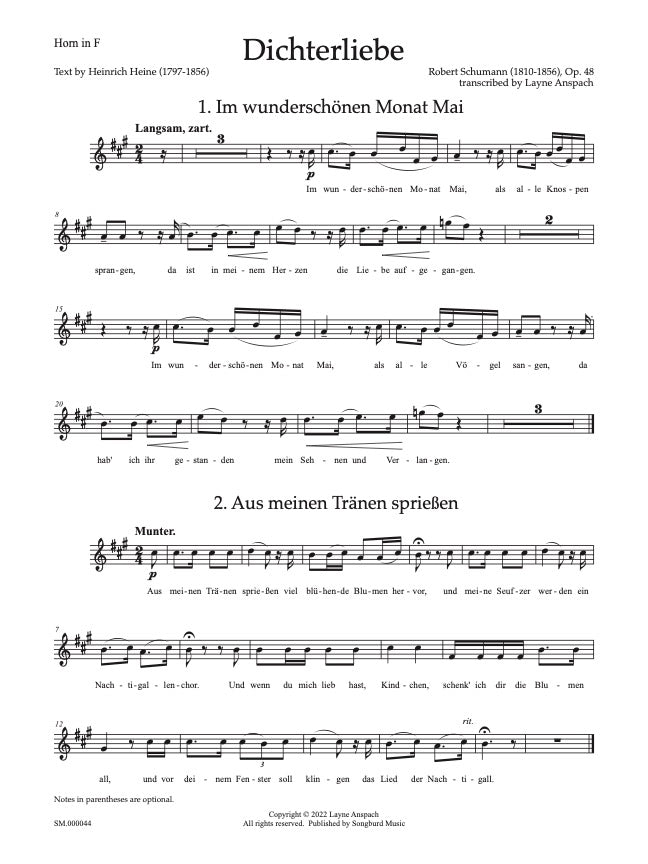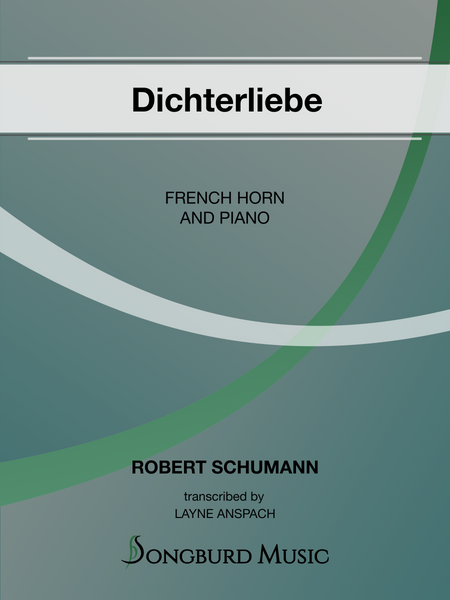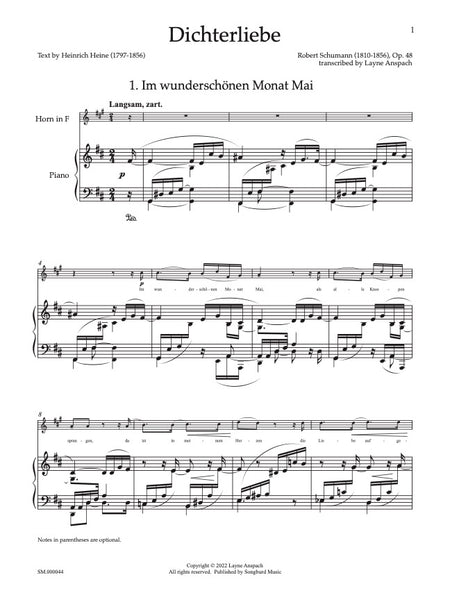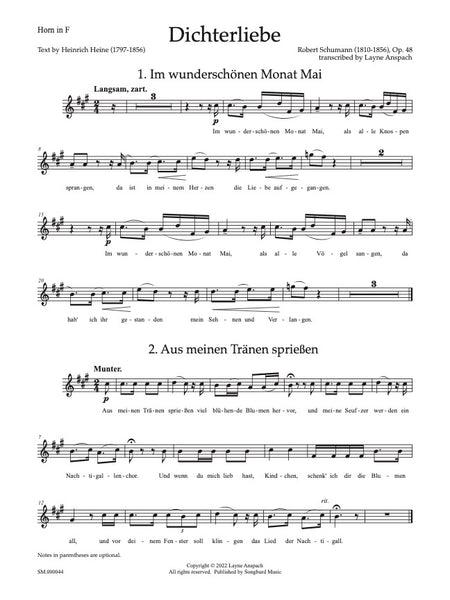Dichterliebe
ROBERT SCHUMANN was a German pianist, music critic and one of the great composers of the Romantic Period who, in an earlier part of his career, was generally critical of the compositional works for piano and voice of his day, and consequently the greater number of his compositions throughout the 1830s were written mostly for piano. Then came the year of 1840, considered to be Schumann’s liedarjahr (year of song), when he composed nearly half of his life’s best-known works, featuring some of the greatest liederkreis (song cycles) ever written for voice and piano. One of his widely celebrated song cycles is the well-known Dichterliebe, Op. 48, which is based on a fanciful story of a knight who experiences rejection and love lost, giving us an insight into Schumann’s interests as a ballad writer, melding dramatic irony with his introspective nature and musical style.
Schumann’s talent for combining dramatic lyrics with pleasing melodies is clearly seen in the moving lieder (songs) of his repertoire, and his Dichterliebe (A Poet’s Love) is thought to be the paramount work among his song cycles. Achieved in part by drawing upon the lyric poetry of Heinrich Heine, a German author, poet and literary critic whose political activism among the Junges Deutschland (Young Germans) of the 1830s and 1840s instigated at one point the banning of his works in Germany, leading him to become an expatriate who spent his final years living in Paris, France.
Notably, the Romantic Period in Germany is thought to have had its roots in the Sturm und Drang (Storm and Stress) of the late 1700s and was certainly influenced to some degree by the French Revolution, which contrasted itself to the rationalism of the fading period of the Age of Enlightenment. Thus, the ideological movement of the Young Germans, and its reactive stance to the Romanticism of the era, adds some contrast to Heine’s lyric poetry, which expressed personal emotions and the irony of love, solidified in his Buch der Lieder (Book of Songs) that was published in 1827.
Divided into five sections, Heine’s Book of Songs dealt with issues of unrequited love, romanticism, and introspection, and it was from the more than 60 poems of the lyrical cycle Lyrisches Intermezzo (Lyrical Intermezzo) that Schumann found inspiration for his noteworthy song cycle, selecting 16 of Heine’s lyric poems for his Dichterliebe.

